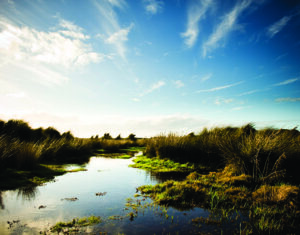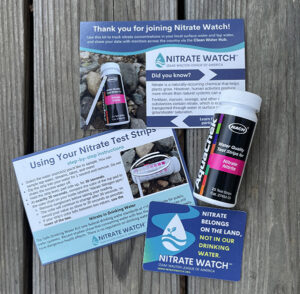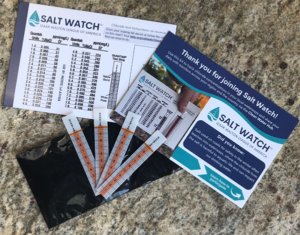Over the past 100 years, the Izaak Walton League of America has carved out a unique role, promoting community-based conservation and volunteer science while advocating for strong state and national policies to protect our air, water and wildlife.
The League’s approach to conservation is also deeply rooted in the outdoor traditions like hunting, fishing, canoeing and camping that our founders enjoyed. In communities nationwide, League chapters have been and remain a gateway to the outdoors where generations of Americans caught a fish, shot a rifle or took their very first steps to protect the environment.
Looking to the future, we have ambitious goals to get more Americans involved in conservation, volunteer science and policy advocacy.
Our Mission
To conserve, restore, and promote the sustainable use and enjoyment of our natural resources, including soil, air, woods, waters, and wildlife.

Who We Are
At the turn of the 20th century, uncontrolled discharges of industrial waste and raw sewage, unrestricted logging, and soil erosion threatened to destroy the nation’s most productive waterways. The country’s forests, wetlands, and wilderness areas were quickly disappearing. In 1922, 54 sportsmen declared that it was “time to call a halt” to this destruction. Aware that action – not just talk – would be necessary to solve these problems, the group decided to form an organization to combat water pollution and protect the country’s woods and wildlife. As a reminder of their purpose, they named the organization after Izaak Walton, the 17th-century English angler-conservationist who wrote the literary classic The Compleat Angler.
The Izaak Walton League of America soon became the nation’s preeminent organization of hunters, anglers, and outdoor enthusiasts dedicated to sustainable use of our country’s natural resources. Almost every major, successful conservation program that America has in place today can be traced directly to a League activity or initiative. Today, our more than 40,000 members and 200 community-based chapters are building on the accomplishments of those who preceded them as defenders of the nation’s soil, air, woods, waters, and wildlife.

 Your kit will include a bottle containing 25 nitrate test strips which you can use to test your water source(s) throughout the year. You’ll also receive postcards explaining how to use your nitrate test strips and how to share your Nitrate Watch results on the Clean Water Hub.
Your kit will include a bottle containing 25 nitrate test strips which you can use to test your water source(s) throughout the year. You’ll also receive postcards explaining how to use your nitrate test strips and how to share your Nitrate Watch results on the Clean Water Hub. Your kit will include four test strips so you can test your waterway throughout the season. You’ll also receive a chart to help you interpret your results and a postcard with instructions for completing a Salt Watch test and reporting your findings.
Your kit will include four test strips so you can test your waterway throughout the season. You’ll also receive a chart to help you interpret your results and a postcard with instructions for completing a Salt Watch test and reporting your findings.